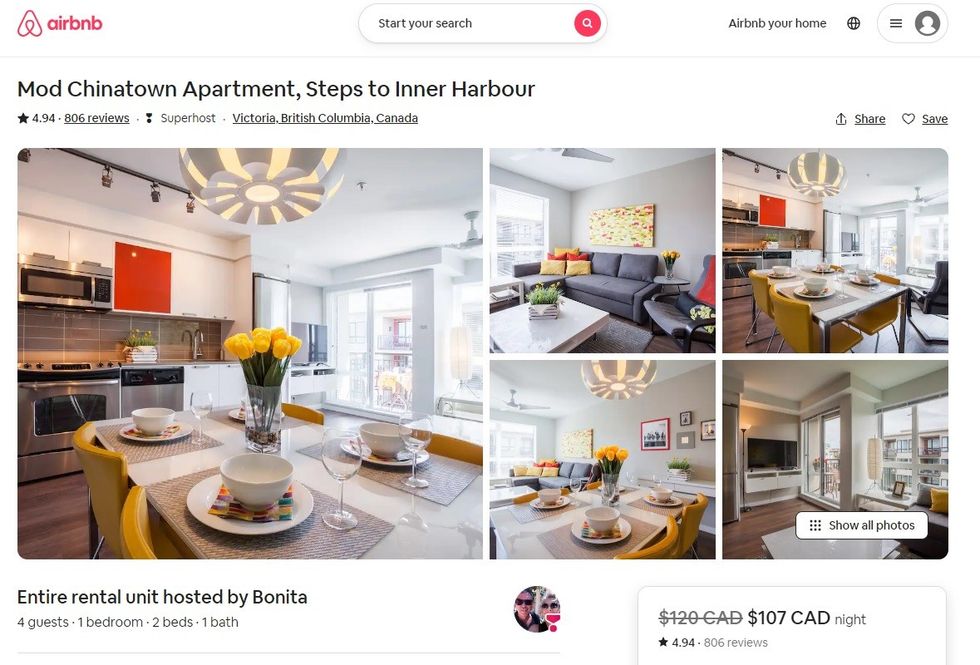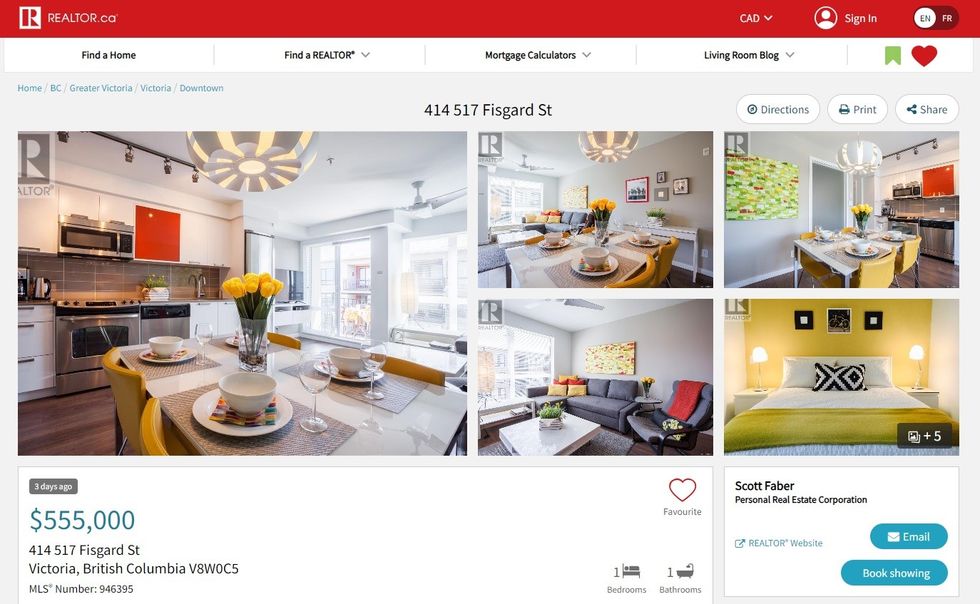The ‘Policy of the Year’ is part of STOREYS annual week-long editorial series. You can find the rest of our 2023 BC selections here.
After the municipal elections that took place last October, and Premier David Eby coming into office the following month, 2023 was the year all of those new governments began to do their work, and the topic of short-term rentals was one of the biggest recurring themes.
The stage was set as early as September 2022, when Eby detailed his housing-focused platform and took aim at "profiteers" capitalizing off of the housing crisis. One such action he was going to take, he said, was to require short-term rental companies such as Airnbnb and Vrbo to provide governments with data regarding unlicensed short-term rentals.
When Ravi Kahlon was appointed Minister of Housing in December, his mandate letter from Premier Eby included the task of introducing legislation that would allow local governments to better regulate short-term rentals in their communities.
That legislation came this October, in the form of Bill 35, the Short-Term Rental Accommodation Act, which received Royal Assent on October 26.
The Action(s)
With the Act, the Province — in its own words — "establishes a provincial role in the regulation of short-term rentals." Short-term rentals can now only exist (in communities with a population of over 10,000) in a homeowner's principal residence, meaning investors who own other properties than the one they live in would be barred from listing them on platforms like Airbnb, come May 1, 2024.
Furthermore, as promised, the Province will now be creating a provincial registry that will require all hosts to register and maintain a valid license, and all platforms to display those license numbers on their listings. A new Short-Term Rental Compliance and Enforcement Unit will then monitor for compliance and be free to issue penalties when needed, with those penalties also increased from $1,000 to $3,000 per infraction, per day.
In one fell swoop, the Province had changed the short-term rental game, and the effects of the legislation became immediately visible in the market.
The Province announced the legislation on October 16, and before the end of the week, some investors had appeared to list their investment properties for sale. One such example was Unit 414 in a building called The Union, located at 517 Fisgard Street in Downtown Victoria, which was one of 23 condo buildings in Victoria where short-term rentals were allowed due to "non-conforming use" loopholes — i.e. grandfathering — but would cease to in May 2024.


Asked whether his client was selling the property in direct response to the new provincial legislation, the agent representing the seller, Scott Faber, said his client declined to comment.
Perhaps that was just coincidental timing, but it was far from the only example. An analysis of sales listings and Airbnb listings conducted by STOREYS in November found that between October 16 and November 14, a total of 69 condos in Downtown Victoria had been listed for sale, with 35 (roughly 50%) of the units located within the 23 buildings where short-term rentals will cease to be permitted.
Kelowna saw something very similar. A similar analysis conducted by STOREYS found that a total of 44 condos within Kelowna City Centre had been listed for sale in the same timeframe, and 13 (nearly 30%) of them were units within a set of buildings that similarly allow for short-term rentals via non-conforming uses, but will cease to in May.
The City of Kelowna itself had announced earlier this year, prior to the Province's announcement, that it would be reviewing potential policy changes regarding short-term rentals. The changes, made public shortly after the provincial announcement, would remove short-term rentals as an allowable secondary use — i.e. in a primary residence — in all zones of the city and limit short-term rentals to a group of buildings in a designated area of the city. (Approval was delayed as the City awaits further guidance from the Province.)
Kelowna, of course, was not the only municipal government to take actions directed at short-term rentals. Other governments that took actions include Vancouver, the District of North Vancouver, and Richmond — whose actions all differ, but are all framed around improving regulation and bettering their respective housing markets.
The Effect(s)
The reason why Kelowna wanted to make some changes, the City said, was due to "concern that the popularity of short-term rentals has disrupted the Kelowna housing market." All of the governments that took action cited some form of those concerns, as well as the overall endgame of converting a significant chunk of those short-term rentals back into the long-term housing market.
Much of the Province's changes have yet to come into effect, so the jury is still very much out on whether the new legislation will accomplish what it is intended to do. (Airbnb has came out and said, as one might suspect, that it thinks it won't.) As with all sweeping actions governments take, there are concerns about the unintended consequences, which primarily centre around the somewhat heavy-handed approach the Province has taken.
Rocky Sethi, Managing Director of Stryke Group, who has an upcoming master-plan project next to Penticton Regional Hospital, says the provincial legislation will affect the project and their original intent to create housing for rotational nurses.
"The Province pays about $1,000 a week to house those nurses in fairly low-budget accommodations, so we were like, 'We could deliver housing with short-term rental and then people could rent it out to nurses," says Sethi. "The overreach on this [legislation] is super significant. I have a strong sense that next summer, when hotels in the Okanagan jack their rates like crazy, it's going to hit a lot of families in the pocketbooks."
Sethi says that a more balanced approach the Province could've taken was to leave some room for local governments to use the legislation in ways that work for their respective communities, rather than the one-size-fits-all top-down approach the government took.
"I really do like the legislation, but I just think the way it was painting all municipalities with the same brush is going to create some challenges," he says. "Penticton's situation is different from Kelowna's situation is different from Vernon's situation — in terms of the ratio of rentals, Airbnbs, and hotels. So you've got these very nuanced situation in each municipality, and yet we're coming in with this legislation and have essentially said the situation in Penticton is the same as in Vancouver. Yet, it's not."
"A city is more than just a place to live," adds Michael Geller, an Adjunct Professor at SFU and real estate consultant. "It's a place for commerce [as well]. By effectively eliminating a whole pile of tourist accommodations all of a sudden, you're gonna have unintended consequences. In Vancouver, a part of our economy is dependent on tourism, and I think the government has lost sight of that."
Both Sethi and Geller point to the recent news of hotels in Vancouver hiking their prices for the three nights in December 2024 when pop superstar Taylor Swift will be in town as an example of what can happen when short-term rentals are greatly restricted, at a time when Vancouver and the Metro Vancouver region at large has a very notable shortage of hotel rooms and a series of high-profile events on the schedule — the 2026 FIFA World Cup in particular.
Time will tell what happens and how effective the policies will really be, but regardless of whichever side you're on and where you live, taking on short-term rentals was undoubtedly one of the biggest policy moves of 2023, and could very well continue to be a top-of-mind issue in 2024.





















